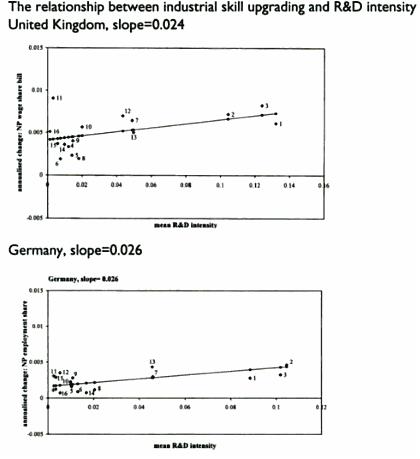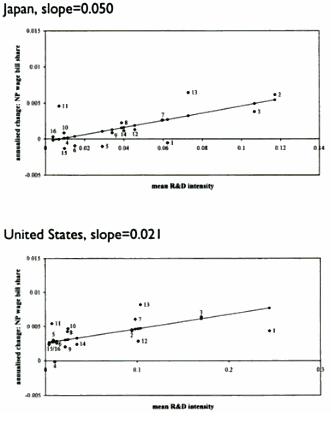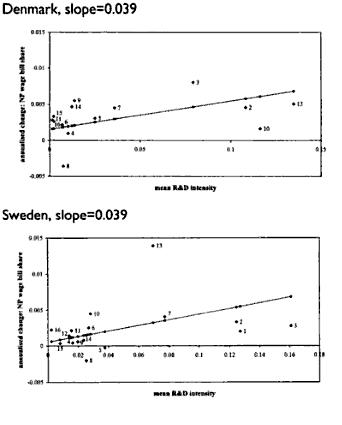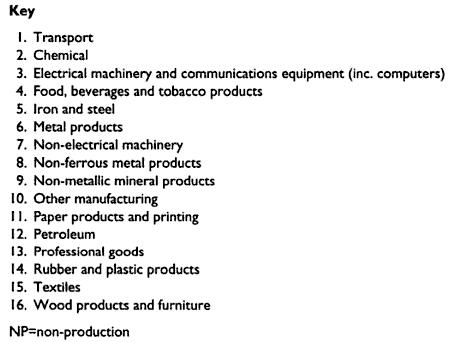In the book State Of Working Britain, Stephen Machins chapter titled, Wage Inequality In 1970's, 1980's and 1990's presents a technologically based argument as too why wage inequality has come about in the developed world, and questions the role international trade has in influencing the wage inequalities displayed in the developed world, predominantly, the UK.
International compeition with developing countries has risen sharply in recent decades. To illustrate the scale of the increased importance of imports form the developing world in the UK context, the ratio of imports from eleven developing countries to GDP quadrupled between 1970 and 1994, although the ratio remains small at less than 0.04 in 1994. The table below reports ratios of imports form developing countries to manufacturing production and the share of the developing country imports to total imports for the six countries examined, in 1970 and 1994. There are large rises in the importance of developing country imports in all six countries, increasing from very low starting levels in 1970(9)
| |
Manufacturing imports from developing countries/ manufacturing GDP |
Manufacturing imports from developing countries/ total manufacturing imports |
||||
|---|---|---|---|---|---|---|
| 1970 | 1994 | percentage chnage | 1970 | 1994 | percentage change | |
| Denmark | 0.015 | 0.039 | 160 | 0.032 | 0.083 | 159 |
| Germany | 0.004 | 0.025 | 525 | 0.035 | 0.107 | 206 |
| Japan | 0.005 | 0.022 | 340 | 0.125 | 0.382 | 206 |
| Sweden | 0.007 | 0.028 | 300 | 0.028 | 0.069 | 111 |
| UK | 0.007 | 0.037 | 429 | 0.051 | 0.108 | 112 |
| US | 0.005 | 0.046 | 820 | 0.099 | 0.272 | 175 |
source (9)
Is there any correlation between skill upgrading and rising import compeition from developing countries? A clear answer emerges - there is no systematic relation between industrial skill upgrading and those directly observed measures of increased international trade linkages with developing countries.
When plotting the relationship between skill upgrading and trade with developing countries for the six countries, the slopes are more or less flat, display no consistant pattern and reveal much less of a relationship between directly observed measured of increased trade linkages with developing countries and skill upgrading compared to the technology correlations which are seen below.




source (9)
It should be pointed out that, in terms of actually testing trade-based explanation of shifts in relative demand, this approach may be much too crude, as it could be the threat of trade that actually matters. So far no-one has produced any persuasive evidence that points to important threat of trade effects. Furthermore, other observations cast doubt that trade has had a big impact. First the trade flows form developing countries are still very small, as most trade in the developed world takes place with other developed countries (see shares of imports from developing countries in total imports reported, table above). Second one sees skill upgrading occuring in non traded sectors. Both of these make it rather difficult to argue that trade is the key factor behind rising labour market inequalities in the developed world. (22) (9)